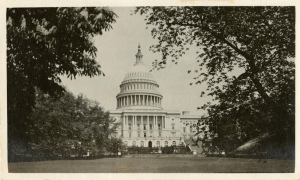Nobility
This post can also be viewed along with other marvelous content at Nineteen Months!
—————————————–
“O SON OF SPIRIT! Noble have I created thee, yet thou hast abased thyself. Rise then unto that for which thou wast created.”
– Bahá’ú’lláh
As I interact with my human family in this very fascinating world, I am faced with the dilemma that the above quote seems to encapsulate perfectly…that we are all created noble, but have to learn to arise from the abasement that we’ve gotten ourselves into. That abasement comes in all forms from abuse to oppression to negligence and all kinds of hurtful experiences that we may put ourselves and each other through.
So the burning question stands: How do we arise out of this lost sense of nobility? What behaviors, systems and practices are we collectively consenting to or engaging in that keep us from our noble destiny? What are our associations with even the word “noble”? How many names have we called ourselves and each other; how many judgements (more…)
Individualism
Post originally published at Nineteen Months
e·go (g, gn. pl. e·go)
1. The self, especially as distinct from the world and other selves
2. In psychoanalysis, the division of the psyche that is conscious, most immediately controls thought and behavior, and is most in touch with external reality
3 a. An exaggerated sense of self-importance; conceit
b. Appropriate pride in oneself; self-esteem
[New Latin, from Latin, I; see eg in Indo-European roots. Sense 2, translation of German Ich, a special use of ich, I, as a psychoanalytic term.]
The individual units that make up society, each one of us, play a concrete role in how our social reality is shaped. If we buy organic, even the Wal-Marts of the world take notice and change or add to what they stock up on. If we respond to large banks’ taking advantage of people through exorbitant charges by moving your business to local banks and credit unions, the Bank of Americas of the world will trip over themselves to change some long-standing policies. In so many areas of social reality, each individual’s decision makes a difference, and the differences that I’ve thus far described are only economic. Companies like Google have designed a different kind of workplace environment from many companies of their size to improve the creative atmosphere for those doing the innovating, rather than stuffing their employees into bland cell-like cubicles. All this demonstrated to me the power of the individual to shape reality.
The other side of this reality for the individual, though, is what I’ve heard described as “unfettered individualism”, which I understand to be closely related to ideas like “survival of the fittest” and “may the best man win”…a mindset that sees “my driveway”, “my yard”, “my job”, “my space” and the like. In short, ways that we’ve managed to teach ourselves and each other in this country to think of ourselves as …Read the entire post here
Governance
I’ve gone into detail in previous posts about individuals and communities, but have yet to devote much attention to the third participant in society: the institutions. What qualifies as an institution generates a vast and weighty list, including local, national and international organizations; media organizations; governments and their agencies; and the institution of marriage. This spectrum of institutions shares many identifying features, but the one I wish to reflect on is structure.

All institutions have a structure in order to effectively administer to its objectives. What shape that structure takes has everything to do with the approach taken in building it. Many structures are chosen from among the existing models, based on the desired outcomes of that institution.
What I feel must be considered, though, is whether the models currently in existence can effectively administer to the needs of a changing age that requires flexibility and adaptation to meet the exigencies of our time. For instance, in the discourse on politics, there is frequently being voiced a need to think beyond the two-party (Republican vs. Democrat) system, and rethink how we might find a less divisive method of electing officials to serve our country in an official capacity.
This clip from a show called “Crossfire”, which tended to deal with the varied positions in US political matters in an adversarial way, clearly demonstrates to me the power of this rising voice in the discourse to rethink this combative approach to political structures in place:
An analogy that I will refer to frequently is that of the human body. This quote is one of many that Bahá’u’lláh refers to in making clear the interconnectedness (more…)

